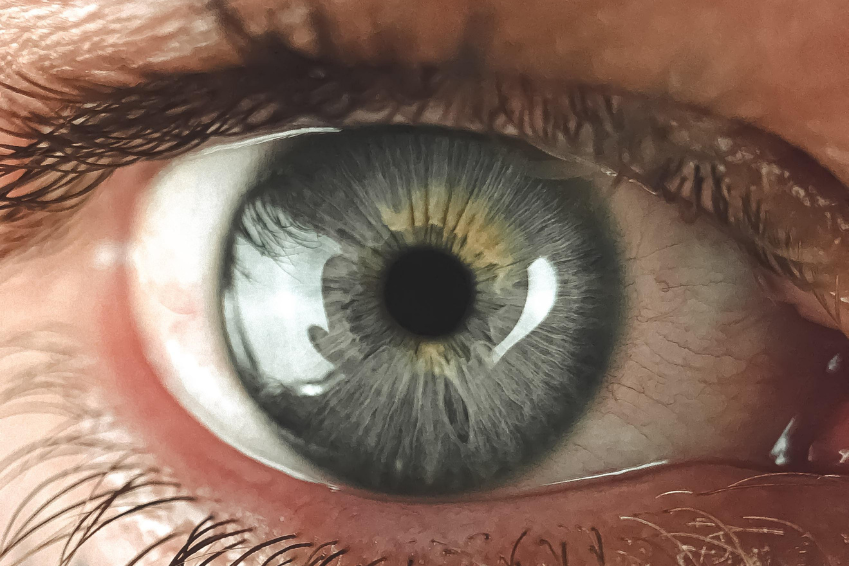Overlapping with other diseases can be a cause of Glaucoma

Comorbidities – i.e. overlapping with other diseases – are considered a major cause of glaucoma. The diagnosis is complex.
A significant but often overlooked cause of glaucoma development and worsening is what is called “overlap with other diseases” or comorbidities.
Examples of comorbidities as Glaucoma cause
Comorbidities are additional medical conditions or diseases that may occur at the same time as glaucoma in a person. These comorbidities can affect the course and treatment of glaucoma. Examples of conditions that may be superimposed on glaucoma include:
- Diabetes
- High blood pressure (hypertension)
- Migraine
- Thyroid dysfunction
- Autoimmune diseases
- Cardiovascular diseases
- Vascular diseases
- Sleep apnoea (SAS)
- Certain neurological diseases
- Inflammatory eye diseases such as uveitis
People who suffer from one or more of these conditions are at increased risk of developing glaucoma or accelerating the progression of an existing glaucoma condition.
Diabetes as a possible cause of Glaucoma
The exact mechanisms of how these comorbidities affect glaucoma are not always fully understood, but there are some possible links. For example, diabetes can affect blood flow in the eye, increasing intraocular pressure.
High blood pressure can cause vascular damage and disrupt the fluid drainage process in the eye. Inflammatory eye diseases can directly damage the tissue of the optic nerve.
 High blood pressure (hypertension) a possible cause of Glaucoma
High blood pressure (hypertension) a possible cause of Glaucoma
Elevated blood pressure, also known as hypertension, can influence the development of glaucoma as it can cause vascular damage in the eye and interfere with normal fluid drainage.
Migraine a possible cause of Glaucoma
The link between migraine and the development of glaucoma is not fully understood, but some studies suggest that people with migraine may be at increased risk for open-angle glaucoma. It is thought that certain common genetic and vascular factors may play a role in both migraine and glaucoma.
Thyroid dysfunction a possible cause of Glaucoma
There is evidence that certain thyroid conditions, particularly hyperthyroidism, may increase the risk of developing glaucoma. This may happen because of metabolic changes and effects on blood flow in the eye.
Autoimmune diseases as a possible cause of Glaucoma
It is thought that inflammatory processes that occur in some autoimmune diseases may affect the optic nerve and eye structures. This in turn may increase the risk of glaucoma. More detailed research into these relationships is needed to deepen our understanding of the role of autoimmune diseases in the development of glaucoma.
Cardiovascular disease as a possible cause of Glaucoma
A link exists between cardiovascular disease and the development of glaucoma, as both conditions are often due to similar vascular changes. Cardiovascular problems can lead to impaired blood flow in the eyes. This can increase intraocular pressure and increase the risk of developing glaucoma.
Sleep apnoea can be a possible cause of Glaucoma
Sleep apnoea is a sleep disorder in which there are repeated pauses in breathing during sleep, which can lead to a lack of oxygen. The link between sleep apnoea and the development of glaucoma is that people with sleep apnoea have an increased risk of developing open-angle glaucoma. Extensive scientific studies are underway on the subject.
It is suspected that the lack of oxygen and the resulting vascular changes can lead to increased intraocular pressure.
Certain neurological diseases as possible causes of Glaucoma
There is evidence that certain neurological conditions can increase the risk of developing glaucoma. But the reverse is also true: people with glaucoma may be at increased risk for neurological problems. Some neurological conditions, such as multiple sclerosis (MS), share an immunological basis with glaucoma.
It is thought that an overactive immune response in the body can damage both the nerves in the brain and spinal cord (as in MS) and the optic nerve in the eye (as in glaucoma). The underlying inflammatory processes can thus increase the risk of both diseases. In addition, certain neurological diseases that affect the central nervous system can affect the regulation of intraocular pressure.
The autonomic nervous system plays a role in controlling intraocular pressure, and disturbances in this system can lead to dysregulation of pressure, which could increase the risk of glaucoma. On the other hand, people who already have glaucoma may have an increased susceptibility to neurological problems, especially related to vision.
If the optic nerve is damaged by glaucoma, this can also have an impact on visual perception and general neurological well-being. Neurological conditions that can be a cause of glaucoma include:
- Multiple sclerosis (MS): Due to the common immunological basis, people with MS may have an increased risk of developing glaucoma.
- Parkinson’s disease: There is evidence that people with Parkinson’s disease may have an increased risk of glaucoma, possibly due to impairment of the autonomic nervous system.
- Alzheimer’s disease: Studies suggest that people with Alzheimer’s disease may have an increased risk of glaucoma, but the exact mechanism is not yet fully understood.
- Stroke: Stroke may increase the risk of eye problems, including increased risk of glaucoma.
- Intracranial pressure increase: Increased pressure in the brain, which can be caused by a brain tumour or meningitis, for example, can increase the risk of glaucoma by damaging the optic nerve.
- Migraine: (see above)
Inflammatory eye diseases like uveitis a possible cause of Glaucoma
Uveitis is an inflammation of the middle layer of the eye (uvea) that can affect different parts of the eye, including the iris, ciliary body and choroid. If uveitis is not treated appropriately or becomes chronic, it can damage the eye and optic nerve.
This can causally lead to increased intraocular pressure. This increased pressure is then associated with an increased risk of glaucoma.
Recording comorbidities in relation to Glaucoma management is a key
Identifying and addressing these comorbidities is critical to comprehensive and effective glaucoma management. Close medical management by ophthalmologists and other specialists who specialise in the particular comorbidities is important to achieve the best outcomes for the patient.
In some cases, the medications used to treat the comorbidities may also affect intraocular pressure or optic nerve health. Therefore, it is critical that the treating physician is aware of all of the patient’s medical conditions in order to develop an appropriate treatment strategy that addresses both the comorbidities and the glaucoma.
Overall, it is important to recognise and actively treat the potential overlap of other diseases with glaucoma. This is to ensure the best chance of preserving vision and avoiding serious complications.

